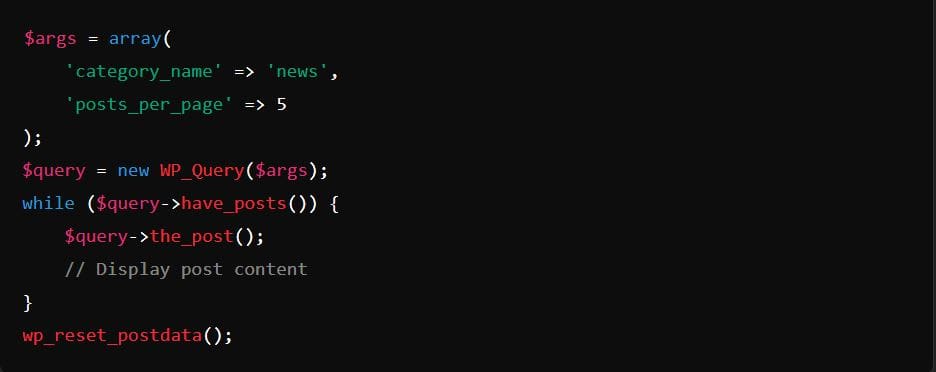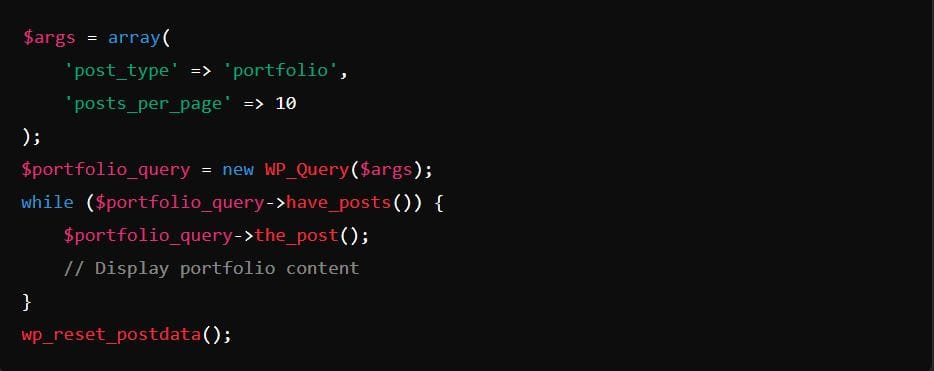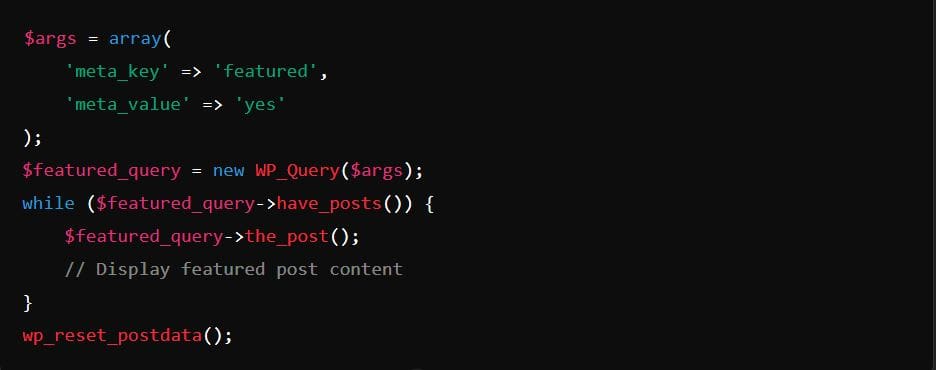- General definition of WP_Query
In the context of WordPress, developers use this powerful class to retrieve posts from the WordPress database. It allows developers to query the database and fetch specific posts based on various criteria, such as category, tag, date, custom fields, and more. - Technical definiton of WP_Query
A PHP class that enables custom queries in WordPress to modify the default behavior of the main query loop, thus customizing the content display on a WordPress site.
Etymology
Derived from "WP," an abbreviation for WordPress, and "query," indicating a request for information from the database. The term specifically refers to querying the WordPress database using the class.
First known use of WP_Query
The concept and class WP_Query were introduced with the release of early versions of WordPress, evolving over time as the platform developed.
Usage
- Development
Developers utilize WP_Query to create custom queries to enhance the functionality of WordPress themes and plugins. - Content retrieval
WP_Query can be used to fetch posts, pages, custom post types, and custom taxonomies based on various parameters.
Examples
Retrieve the latest 5 posts from a specific category:

Display a custom post type on the front page:

Retrieve the latest posts from a category:

Display a custom post type on the front page:

Make a custom query for a specific meta key:

Parameters
Understanding and configuring parameters within WP_Query is crucial for developers aiming to customize content retrieval in WordPress. These parameters enable developers to precisely control which posts, pages, or custom post types the system fetches from the database based on criteria such as categories, tags, custom fields, and more. Mastering these settings empowers developers to craft tailored queries that enhance site functionality and user engagement, ensuring the precise display of content as intended.
- Basic parameters
- category_name: Retrieve posts from a specific category.
- posts_per_page: Number of posts to retrieve.
- post_type: Type of content to retrieve (e.g., 'post', 'page', 'custom_post_type').
- category_name: Retrieve posts from a specific category.
- Advanced parameters
- meta_key and meta_value: Query posts with specific meta fields.
- tax_query: Query posts based on custom taxonomies.
- date_query: Retrieve posts based on specific date criteria.
- meta_key and meta_value: Query posts with specific meta fields.
If you want to know more about this topic, click on this comprehensive study!